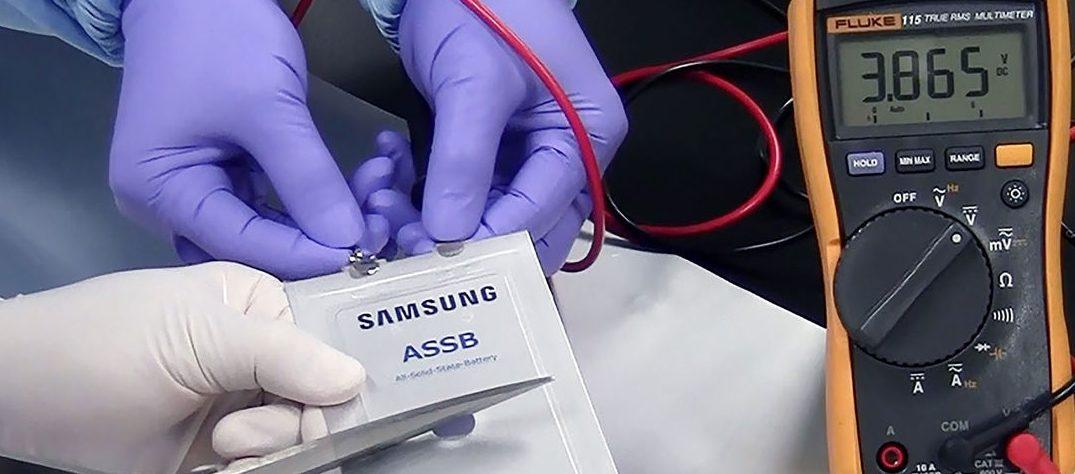The solid-state battery has long been considered the holy grail of battery cell research. Now electronics company and battery manufacturer Samsung has presented the prototype of a solid-state cell. The Koreans themselves call the new battery “groundbreaking”.
Solid batteries are called this because their electrolyte, i.e. the connection between the electrodes, is not liquid, but solid. The material can be ceramic or (plastic-like) polymers. The advantages: The cells of solid-state batteries have a higher energy density; at the same time, they allow the construction of larger modules because they are more stable. This makes the batteries simpler, more compact, lighter and cheaper. The structure also increases the energy density, because fewer modules require fewer edge layers and wiring. Air cooling is also sufficient because the cells are less sensitive to heat. Because of the lack of liquid, the flammability also drops practically to zero – at least in the temperature ranges that can be reached in the car. Reason enough to promote solid battery technology.
Anode without lithium, long service life
However, Samsung says goodbye to lithium as an anode material in its prototype – which is not mandatory for solid-state batteries. The Koreans rather rely on a composite layer made of silver-carbon.
The material on the one hand leads to a higher capacity and on the other hand solves the problem of the so-called dendrite formation of lithium solid-state batteries. Dendrites are electrochemical deposits of metal on the electrodes of a battery; their origin can be compared to the principle of stalactites. In the case of lithium-ion batteries, for example, lithium can deposit on the electrodes and grow there over time into small needles, which in the worst case may penetrate the separating layer between the anode and cathode (separator), which in turn results in a short circuit.
Dendrite formation is a typical sign of aging in batteries. The Samsung battery has a particularly long service life. The battery should survive up to 1,000 charging cycles.
High energy density enables a range of 800 kilometers
Samsung is developing specifically for applications in electromobility and, thanks to its (in principle) high capacity, promises ranges in electric cars of 800 kilometers per full charge. The battery could hold 800,000 kilometers.
The volumetric energy density is 900 watt hours per liter (Wh / l). For comparison: The latest Tesla batteries are said to be 820 Wh / l. Compared to a lithium-ion battery, the Samsung prototype is even said to be 50 percent smaller. Another advantage: The new anode material, silver carbon, allows a thickness of only 5 micrometers – significantly flatter than conventional solutions for lithium-ion batteries.
Project manager Dongmin Im from the Samsung Advanced Institute of Technology (SAIT) is confident: “The product of this study could be the technological foundation stone for safer high-performance batteries of the future”. But the catch with Samsung development is the same as with other promising concepts: the prototype is far from ready for the market. A lot of revisions are still required and then the Koreans have to develop production processes for mass production.
